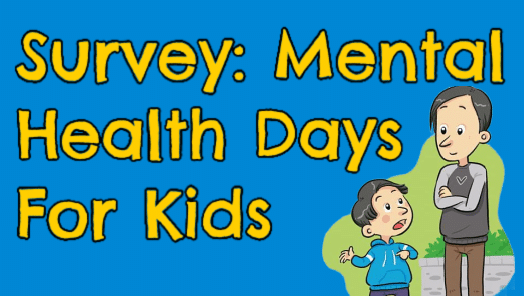Attendance Advocacy: 3-in-4 American Parents Back Mental Health Sick Days for Kids, Finds Study.
- 2/3 of parents feel it should be their decision (and not the school’s).
- 8% believed feeling overwhelmed by schoolwork warrants a day off.
- Interactive map showing study results.
Nationally, approximately 26 percent of public school students were classified as chronically absent during the last school year, a significant rise from 15 percent before the pandemic. This alarming trend is based on recent data from 40 states and Washington, D.C., collected by the American Enterprise Institute.
Multiple factors contribute to this issue. Some families take advantage of off-peak travel discounts, vacationing during the school year, while parents in less affluent communities may be too preoccupied with work to monitor their children’s attendance. Additionally, mental health has emerged as a critical factor in student absenteeism.
The flexibility of remote work has allowed many parents to accommodate children experiencing mental health issues by letting them stay home. There is growing acceptance among parents that taking a mental health day is necessary and beneficial for their children.
To delve deeper into this issue, Test Prep Insight, an online education company, conducted a survey among 3,000 parents, focusing on absences related to mental health. The survey aimed to gauge parental support for absenteeism when it directly benefits a child’s mental health. Traditionally, school authorities have discouraged prolonged absences, but shifting perceptions toward mental health in recent years might indicate a change in attitude.
The survey revealed that a staggering 73% of parents in America believe children should be allowed to take days off school for mental health reasons. Support for this idea is highest in Minnesota, where 86% of parents agree with the rule change, while Vermont shows the least support, with only 40% of parents in favor.
https://testprepinsight.com/resources/survey-parents-on-mental-health-absenteeism
Current barriers preventing children from taking mental health days include unsupportive school policies, cited by 47% of parents, and social stigma around mental health, noted by 27%. Additionally, 26% of parents believe the fear of falling behind academically is a significant deterrent.
When asked which factors should justify a mental health day for a student, over half (52%) of parents cited symptoms of a mental health disorder such as anxiety or stress. Another 24% mentioned family issues or personal problems, 15% thought grieving the loss of a loved one was justifiable, and 8% believed feeling overwhelmed by schoolwork warranted a day off.
Regarding who should have the final say in deciding if a child can take a mental health day, 66% of parents felt it should be the parents’ decision, 17% thought it should be the child’s physician or therapist, and 3% believed the school should make the final call.
Test Prep Insight also explored parents’ views on how schools should support students taking mental health days. The results were varied: 33% of parents thought schools or teachers should offer catch-up sessions, 30% believed in regular check-ins from school counselors, 25% advocated for flexible deadlines for assignments, and 12% wanted teachers to provide assignments in advance.
Finally, parents were asked what changes they would like to see in how schools handle mental health issues. Thirty-nine percent called for better training for teachers on mental health awareness, 23% wanted mental health education integrated into the curriculum, 21% sought more proactive communication between schools and parents, and 17% desired more on-site mental health professionals.
